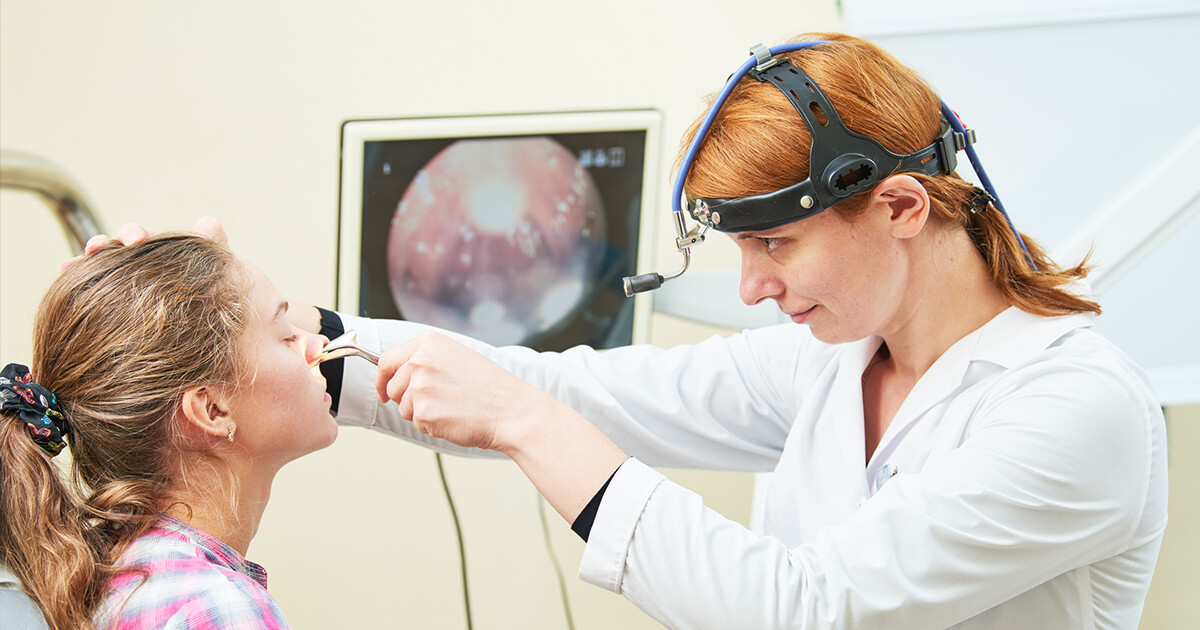Discovering the Area of Otolaryngology: What to Expect When You Speak With an ENT
Otolaryngology, frequently described as ENT, encompasses the diagnosis and therapy of nose, ear, and throat conditions. Hearing. For those experiencing relevant concerns, seeking advice from an ENT professional can give clearness and relief. Recognizing what to anticipate during such examinations is essential for reliable communication and care. This review will certainly describe vital facets of the ENT experience, consisting of common reasons for gos to and the processes associated with medical diagnosis and treatment
Comprehending Otolaryngology: A Review
Otolaryngology, typically referred to as ENT (Nose, ear, and throat) medicine, is a specific branch of medicine that concentrates on the medical diagnosis and therapy of conditions influencing these critical areas of the human body. This area encompasses a variety of problems, including those pertaining to hearing, equilibrium, respiratory function, and speech. Otolaryngologists are trained to handle both clinical and medical treatments, utilizing sophisticated techniques and innovations. Their knowledge extends beyond typical conditions, dealing with issues such as allergies, sinus infections, and hearing loss. Furthermore, they play an essential role in the management of head and neck cancers, providing extensive treatment tailored to specific person needs. On the whole, otolaryngology continues to be necessary for preserving wellness and high quality of life in affected people.
Usual Reasons to See an ENT Expert
Numerous individuals look for the know-how of an ENT professional for a variety of reasons, reflecting the varied nature of problems that affect the ear, nose, and throat. Typical issues include persistent sinusitis, which commonly results in relentless nasal congestion and face discomfort. Allergies and their associated signs, such as itching and sneezing, additionally prompt brows through to these specialists. Hearing loss, whether progressive or abrupt, is another significant reason for appointment. Additionally, people may look for evaluation for throat problems, including relentless hoarseness or ingesting difficulties. Sleep apnea, defined by cut off breathing throughout rest, is often attended to by ENT experts. Each of these problems highlights the importance of specialized care in managing complex ENT-related health and wellness problems.
Planning for Your ENT Visit
When preparing for an ENT appointment, it is necessary to collect relevant information and take into consideration any details concerns. People need to assemble a thorough case history, consisting of previous ear, nose, or throat issues, surgical treatments, and current medications. Recording signs and symptoms-- such as seriousness, period, and regularity-- can supply valuable understandings for the ENT specialist. In addition, individuals must prepare a listing of inquiries they want to ask, ensuring that all problems are resolved during the check out. Bringing along any pertinent clinical documents or test outcomes can better assist the ENT in understanding the person's condition. Lastly, patients must verify their appointment information, consisting of day, place, and time, to lessen any final confusion. Appropriate preparation can boost the effectiveness of the consultation and lead to far better results.

What to Expect During the Assessment
As the consultation starts, the patient can anticipate to participate in a comprehensive conversation with the ENT professional regarding their symptoms and case history. The specialist will certainly make inquiries regarding the duration, regularity, and seriousness of symptoms such as hearing loss, nasal congestion, or sore throat. In addition, the client's previous clinical conditions, drugs, and any kind of pertinent family history will certainly be examined, aiding the expert in developing a complete understanding of the client's wellness. The ENT may also inquire about lifestyle elements, such as exposure to allergens or toxic irritants. This open dialogue develops a foundation for the appointment, ensuring that the client's issues are dealt with and establishing the stage for any kind of essential analyses or referrals for therapy.
Analysis Examinations and Treatments in Otolaryngology
A series of analysis tests and treatments are important in otolaryngology to properly review and identify problems impacting the ear, nose, and throat. Common tests consist of audiometry, which determines hearing function, and tympanometry, evaluating middle ear pressure. Nasal endoscopy allows visualization of the nasal flows and sinuses, while laryngoscopy checks out the throat and singing cords. Imaging methods, such as CT scans and MRIs, offer detailed sights of head and neck structures. Allergy screening might also be carried out to determine triggers for sinus or breathing issues. These analysis tools allow ENT professionals to develop a complete understanding of people' problems, making certain customized and efficient administration strategies. Correct medical diagnosis is necessary for successful therapy outcomes in otolaryngology.
Therapy Options Supplied by ENT Specialists
ENT specialists offer a selection of treatment options tailored to attend to certain conditions affecting the ear, throat, and nose. These treatments range from conservative approaches, such as medicine and lifestyle adjustments, to even more invasive procedures. As an example, allergic reactions might be handled with antihistamines or immunotherapy, while chronic sinus problems might call for nasal corticosteroids or sinus surgery. For hearing loss, ENT specialists typically suggest hearing help or surgical treatments like cochlear implants. In instances of throat problems, options can consist of speech treatment or surgeries to eliminate obstructions. Additionally, they might give guidance for managing rest apnea, including using CPAP devices or medical interventions. Generally, the goal is to improve individuals' lifestyle through individualized Hearing treatment and efficient treatment strategies.
When to Look For Follow-Up Care With an ENT
When to look for follow-up care with an ENT specialist is crucial for managing recurring signs or issues connected to throat, nose, and ear conditions, recognizing. Individuals should think about setting up a follow-up consultation if symptoms continue despite first treatment, such as chronic ear pain, nasal congestion, or throat discomfort. Adjustments in hearing, equilibrium problems, or uncommon nasal discharge might also warrant additional evaluation. In addition, if a client experiences side results from prescribed medications or has actually undertaken a surgery, follow-up care is very important to check recovery and attend to any kind of concerns. Prompt consultations can assure efficient administration of problems, protect against potential issues, and give tranquility of mind concerning one's health. Seeking follow-up treatment promotes proactive health administration in otolaryngology
Regularly Asked Questions
What Qualifications Should I Look for in an ENT Expert?
When looking for an ENT expert, one ought to seek board certification, pertinent experience, and solid person reviews. Additionally, reliable communication skills and a compassionate approach can considerably boost the overall therapy experience.
Just how Do I Pick the Right ENT for My Requirements?
Picking the right ENT specialist involves reviewing their certifications, experience, and person testimonials. It is important to consider their communication style and technique to treatment, ensuring they line up with the individual's particular wellness demands and choices.
Exist Any Type Of Risks Related To ENT Procedures?
The threats related to ENT treatments may consist of infection, bleeding, anesthesia problems, and possible damage to bordering structures. Individuals ought to review these risks with their doctor to understand private concerns and warranty notified choices.
How Can I Take Care Of Anxiousness Before My ENT Visit?
To handle anxiousness prior to an appointment, individuals can practice deep breathing workouts, visualize positive end results, prepare concerns beforehand, and look for support from buddies or family members, cultivating a sense of reassurance and calmness.

What Should I Do if I Experience Adverse Effects From Therapy?
The person should quickly report them to their health care service provider if side results from treatment take place. Modifications to therapy or added treatments might be required to ensure security and efficiency in handling their problem. As the consultation begins, the patient can expect to engage in a detailed conversation with the ENT specialist about their symptoms and clinical background. These analysis devices allow ENT specialists to create a complete understanding of clients' conditions, making certain tailored and effective monitoring strategies. ENT professionals provide a selection of therapy choices tailored to resolve specific problems impacting the throat, nose, and ear. When seeking an ENT professional, one must look for board accreditation, pertinent experience, and strong individual reviews. Selecting the ideal ENT expert entails evaluating their qualifications, experience, and person reviews